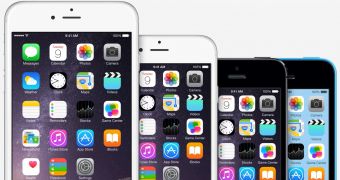Apple and the FBI are currently involved in a dispute over an iPhone that was used by one of the terrorists in the San Bernardino attacks, with a recent court order forcing the company to help the feds break into the device.
Apple CEO Tim Cook, however, has opposed the ruling and emphasized that hacking into an iPhone would cause additional risks for users across the United States. He has explained that while it’s working together with the FBI on several other cases, the has company never broken into one of its devices.
And according to a new report published by the WSJ, the cases that Tim Cook might be referring to involve other iPhones that the FBI is also trying to get access into. There are “about 12 other iPhones” that the FBI wants to hack, the report claims, but none is related to terrorist attacks.
These iPhones are not involved in terrorist attacks
Most likely, the San Bernardino iPhone is just the tip of the iceberg, and by forcing Apple to hack this device, the FBI pretty much sets a precedent that can be invoked in the other cases too. And yet, the feds claim that the San Bernardino dispute is one very special case because it involves terrorists, and the software that could be developed by Apple would never be used on other phones.
On the other hand, Apple’s Tim Cook has already opposed any backdoor that could help the FBI hack that iPhone and explained in a statement that the company has never worked with the government to put a backdoor in one of its devices.
“No. We regularly receive law enforcement requests for information about our customers and their Apple devices. In fact, we have a dedicated team that responds to these requests 24/7. We also provide guidelines on our website for law enforcement agencies so they know exactly what we are able to access and what legal authority we need to see before we can help them,” Cook said.
In all cases, including “the other iPhones,” Apple is refusing to comply with government’s demands and says that it can only provide information that’s stored on its servers, and not on the devices themselves.

 14 DAY TRIAL //
14 DAY TRIAL //